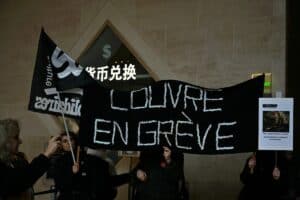Several attacks have been launched on city employees and vehicles, according to Tshwane's mayor.

The City of Tshwane mayor Cilliers Brink has lamented violent incidents linked to the protracted municipal strike in the metro, alleging a senior South African Municipal Workers Union member’s vehicle was used in the torching of a waste truck.
Municipal workers have been on strike since the end of July, demanding salary increases despite the metropolitan municipality obtaining an interdict to cease the protest action.
The strike has led to more than 100 employees being dismissed and has hindered service delivery across the city.
Firebombing incident
Speaking during a media briefing on Thursday, Brink said he believed violence was being used as a negotiating tactic in the strike.
Brink cited an incident in which the car of a senior member of Samwu‘s regional executive was allegedly caught on video participating in the firebombing of a waste removal truck.
“Video evidence shows a group of people being dropped off on the street. They then proceed to attack the waste truck and set it alight.
“Finally, they are collected by the same vehicle that dropped them off and they leave the scene of the crime. The vehicle, identified by its make, model and registration number, belongs to the Samwu official,” he said.
ALSO READ: Tshwane faces criticism over ‘ill-advised’ move to appoint senior managers amid financial crisis
The Tshwane mayor said the official has since been fired by the city because he allegedly could not back up his version of events with proof.
“Yesterday, the city manager informed me that the investigators of the city had established that the official’s alibi about the possession of his vehicle on the day of the attack could not be verified. So the city manager has dismissed the official.”
The Citizen has reached out to Samwu for response to the claims. This story will be updated with this, once recieved.
Brink said no arrest have been made, while the investigation continues.
“This now leaves the issue of a criminal investigation. The evidence in this matter was handed over to the South African Police Service [Sap] shortly after the incident,” Brink explained.
Watch the briefing below:
Several attacks
The Tshwane mayor said several attacks have been launched on city employees, vehicles and infrastructure during the strike.
“The trade union has of course denied any involvement in acts of criminality.
“They have also denied that there is a strike in Tshwane or that their leaders are involved with the strike, but the information in possession of the city, including the video footage and the discredited alibi, draws a link between Samwu’s top leadership and the commissioning of crime in furtherance of the unprotected strike.”
RELATED: Tshwane on the Brink: Opposition parties call for end to Samwu strike
Brink said several city employees had been hospitalised as a result of the violent strike over the past two months.
“The aim is clearly to terrorise people who render services to the communities and to stop them from doing their work.
“The reason why the city is still behind on household waste collection, why many of our streets are trashed and why it takes longer than usual to attend to electricity and water outages is because of this campaign of terror in which a Samwu leader has now been implicated.”
‘Ballooning public sector wage bill’
Brink claimed the strike was an example of how public service trade unions enjoy “tremendous political power” in the country.
“At present the national government is contemplating deep funding cuts to services, including infrastructure development, grants and subsidies, to provinces and municipalities. The reason for these cuts is to fund salaries awarded to public servants.”
He said government was running out of money.
READ MORE: ‘It’s an insult’: Minister hits back after government accused of creating wage ‘monster’
“Services in every municipality and province are being threatened by this country’s ballooning public sector wage bill. Those who are not willing to face this reality will also not be in a position to rescue the situation,” the mayor continued.
The mayor defended the city’s decision not to implement the workers’ wage hike, saying the consequences would be “far more devastating”.
Last month, the city was ordered to pay R600 million in salary increases after the South African Local Government Bargaining Council (SALGBC) rejected the municipality’s application to be exempted from implementing the wage agreement reached in 2021.
The Tshwane metro is taking the SALGBC’s decision on review in the Labour Appeals Court to avoid further strain on an already R3 billion underfunded budget.
13th cheque
Meanwhile, the city announced on Wednesday that its employees will no longer receive their 13th cheque in November as usual.
The R565,16 million in 13th cheques will be paid over a three-month period until the end of January 2024.
This is due to the municipality’s liquidity challenges, according to city manager Johann Mettler.






